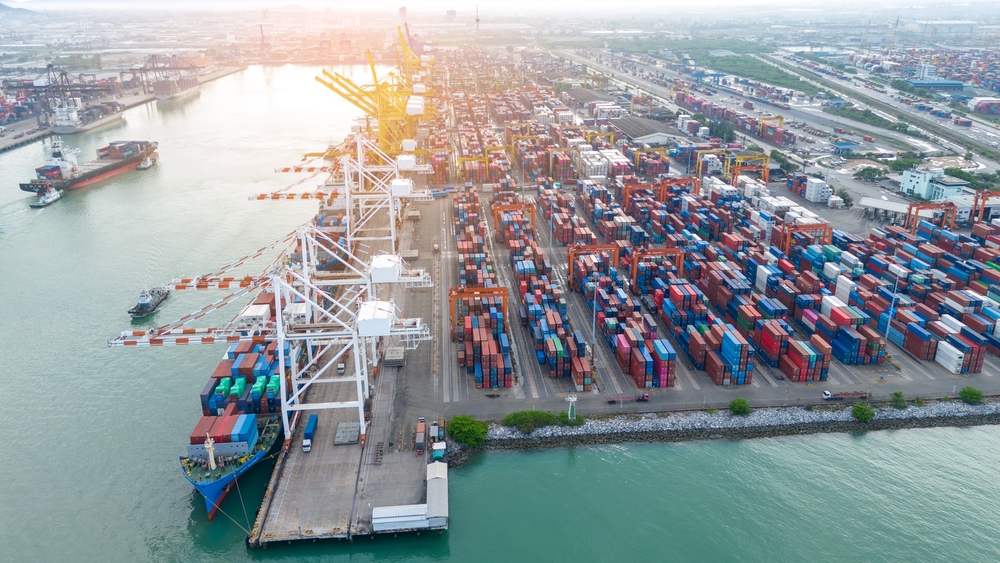
The labor dispute at the Port of Montreal has intensified as the Maritime Employers Association (MEA) announced it will suspend salary guarantees for striking union members. This move marks a significant escalation in the ongoing conflict between the port’s employers and the Canadian Union of Public Employees (CUPE) Local 375, whose recent strikes over scheduling halted operations at two of Montreal’s four container terminals. This dispute has led to disruptions affecting 40% of the port’s container handling capacity, with ripple effects on Canada’s trade and logistics networks.
Escalating Measures: Suspension of Salary Guarantees
In a statement, the MEA declared that it had “no other choice” but to suspend salary guarantees for non-working longshore employees, citing the “cumulative financial impact of repeated strikes and lower volumes at the Port of Montreal.” This step is aimed at mitigating financial losses as strikes and reduced container volumes continue to impact the port’s operations. The decision to halt salary guarantees, effective Tuesday, places additional pressure on unionized workers and underscores the MEA’s resolve to push back against ongoing work stoppages.
This dispute adds to labor unrest in Canada’s ports, as longshore workers represented by the International Longshore and Warehouse Union (ILWU) were recently locked out by employers on the West Coast. This wider backdrop of labor conflicts in Canadian ports reflects rising tensions within the country’s maritime and transportation sectors, highlighting the challenges that come with managing labor relations in an essential industry.
The Core of the Dispute: Scheduling and “Shift and Relay” Policies
The crux of the disagreement at the Port of Montreal revolves around the port’s “shift and relay” scheduling system. CUPE Local 375, representing the longshore workers, has raised objections to the current scheduling arrangements, which the MEA contends are part of the existing contract and, as such, are not subject to unilateral alteration without formal negotiations. In particular, CUPE has focused its strike efforts on Termont Terminals’ Viau and Maisonneuve facilities, a move that MEA argues unfairly targets a single operator within the broader port network.
The MEA insists that any changes to working hours or shifts can only be implemented through negotiated amendments to the existing agreement, countering the union’s claims and reiterating the importance of upholding the contract in its current form. To resolve the impasse, the MEA has proposed entering negotiations under the guidance of a federal mediator, but CUPE rejected this approach. The MEA has since appealed to Canada’s Labor Minister Steven MacKinnon to intervene and help bring the parties back to the bargaining table, indicating a willingness to explore government-assisted mediation to reach a compromise.
Impact of Strikes on Port Operations and Economic Fallout
The series of strikes led by CUPE Local 375 has had tangible effects on the Port of Montreal’s operations, leading to a noticeable decline in container volumes and revenue for terminal operators. With 40% of container handling at the port halted due to the ongoing labor disruptions, the port is experiencing reduced efficiency, extended delays, and economic pressure to reduce costs in response to diminished operational capacity.
As a consequence, MEA has warned that cuts in the organization have already been implemented and that further cost-cutting measures may be necessary if the strikes continue without resolution. These reductions underscore the economic strain on the port’s management and signal the potential for broader operational adjustments if the dispute continues to affect container throughput.
Next Steps and Potential Government Intervention
Given the current impasse and the union’s refusal to negotiate with a federal mediator, MEA’s appeal to the Labor Minister could become a pivotal step in advancing negotiations. While the MEA is pushing for a resolution through formal negotiations, the path forward remains uncertain, particularly if CUPE maintains its stance against mediated discussions. The involvement of government representatives could provide a structured framework for resuming talks and potentially reach a compromise on the scheduling dispute.
As the Port of Montreal remains a critical hub for Canadian trade, the outcome of this dispute could have far-reaching implications for the nation’s supply chain and economic stability, especially as the holiday season approaches. Both sides are under mounting pressure to address the disruptions, with MEA’s suspension of salary guarantees serving as a clear signal that employers are prepared to escalate measures in pursuit of a resolution.
Source:
https://www.freightwaves.com/news/montreal-port-employers-pressure-striking-union











Leave a Comment